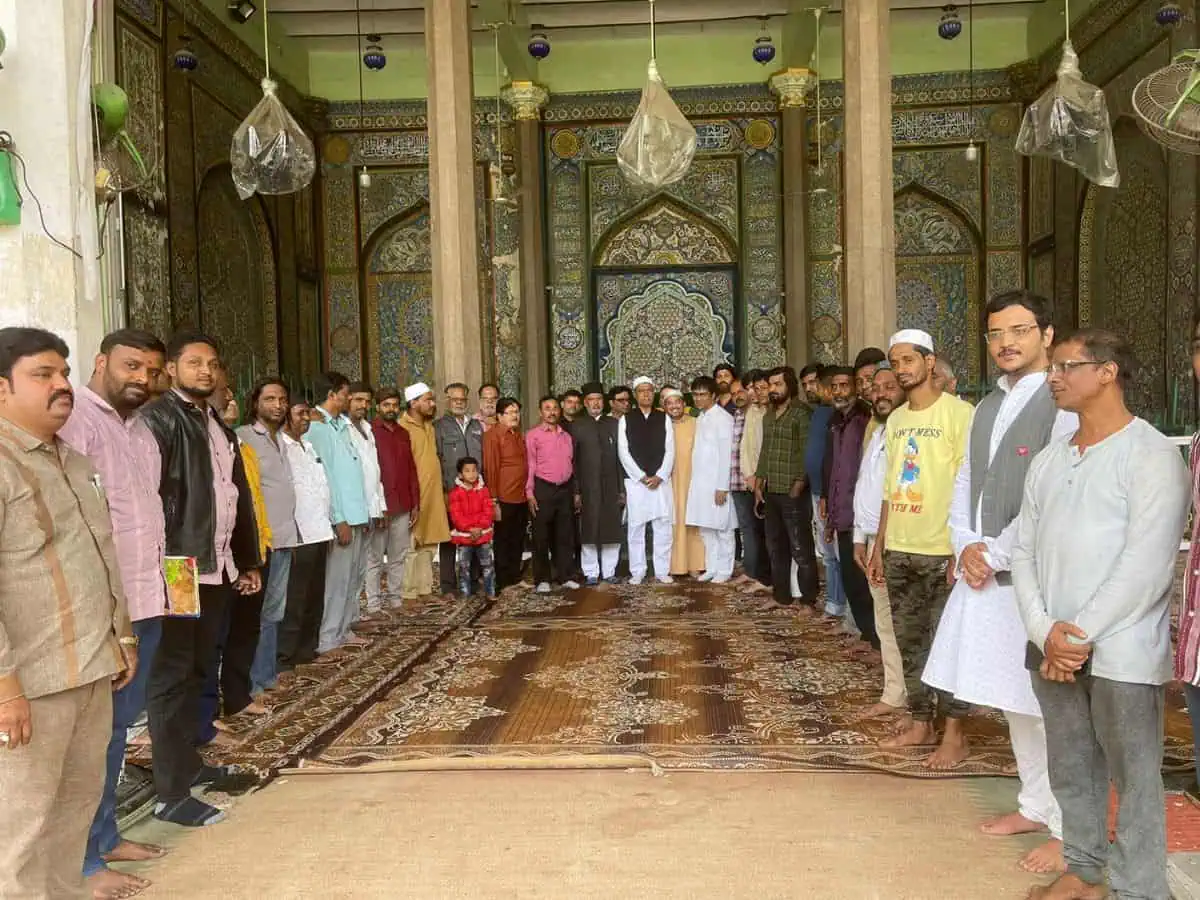AhlulBayt News Agency: Ahead of Muharram, Shia Muslim groups from across the state have demanded that the state’s Congress government declare it as a state observance.
With less than a month for Muharram, an organisation of custodians of Ashoorkhanas in Telangana, Anjuman e Mutawallian, held a meeting at the Badashahi Ashookrkhana on Monday, June 10. The organisation also stated that the Congress in its manifesto had promised to declare, Muharram, also known as Peerla Azadari, as a state observance after coming to power. They demanded that chief minister Revanth Reddy fulfil the Congress party’s promises.
The group also demanded that the state government earmark Rs 100 crore towards repairs and renovations of the Ashoorkhanas, Peerla Chude, across the state, particularly the historical ones adding that special funds must be allocated for the observance of Muharram across districts.
An Ashoorkhana is where Shia Muslims mourn during Ashura, the 10th of Muharram. The place is dedicated to Imam Hussain, a grandson of the Prophet Muhammad (pbut) who was martyred in the battle of Karbala.
“Muharram has been traditionally observed by people of all communities. It is the best example of unity in diversity. 50 percent of the people connected with Peerla Azadari are farmers and soldiers,” said the President of the organisation, Mir Abbas Ali Moosvi.
Muharram marks the commencement of the new Islamic year and has both religious and historic significance. Particularly, Azadari (mourning), the highlight of Muharram is a subject by itself.
The practice of public display of grief and lamentation is as old as Hyderabad. Charminar, the city’s most famous icon, is believed to contain many Shiite symbols, including an ‘Alam’ (copy of battle standards) in its stucco work. Qutb Shahi rulers, who were Shiite themselves, built a number of Ashoorkhanas (places where Alams are installed and mourning done) and funded the religious activities.
/129
With less than a month for Muharram, an organisation of custodians of Ashoorkhanas in Telangana, Anjuman e Mutawallian, held a meeting at the Badashahi Ashookrkhana on Monday, June 10. The organisation also stated that the Congress in its manifesto had promised to declare, Muharram, also known as Peerla Azadari, as a state observance after coming to power. They demanded that chief minister Revanth Reddy fulfil the Congress party’s promises.
The group also demanded that the state government earmark Rs 100 crore towards repairs and renovations of the Ashoorkhanas, Peerla Chude, across the state, particularly the historical ones adding that special funds must be allocated for the observance of Muharram across districts.
An Ashoorkhana is where Shia Muslims mourn during Ashura, the 10th of Muharram. The place is dedicated to Imam Hussain, a grandson of the Prophet Muhammad (pbut) who was martyred in the battle of Karbala.
“Muharram has been traditionally observed by people of all communities. It is the best example of unity in diversity. 50 percent of the people connected with Peerla Azadari are farmers and soldiers,” said the President of the organisation, Mir Abbas Ali Moosvi.
Muharram marks the commencement of the new Islamic year and has both religious and historic significance. Particularly, Azadari (mourning), the highlight of Muharram is a subject by itself.
The practice of public display of grief and lamentation is as old as Hyderabad. Charminar, the city’s most famous icon, is believed to contain many Shiite symbols, including an ‘Alam’ (copy of battle standards) in its stucco work. Qutb Shahi rulers, who were Shiite themselves, built a number of Ashoorkhanas (places where Alams are installed and mourning done) and funded the religious activities.
/129

